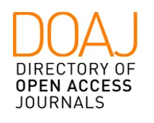Henri Poincaré
The Love for Truth and the Relations Between Ethics and Science
DOI:
https://doi.org/10.24117/2526-2270.2024.i17.04Keywords:
Bankruptcy of science, Berthelot, Ethics and science, Love of truth, PoincaréAbstract
In the years 1903-1910, Poincaré developed thoughts about the relationship between ethics and science. This essay gives a historical or genetic framework for these thoughts and analyzes their content. Around 1895, Ferdinand Brunetière claimed that science was bankrupt, and Marcelin Berthelot responded in the name of science. Poincaré came to affirm an ideal of science that shows its moral value, centered on the disinterested cult of truth, independence of spirit, criticism and vigilance towards prejudices, a skepticism that prevents presenting as science what is only half-science. At the same time, Poincaré, who attributed the driving force of moral actions to feelings, insisted on the impossibility/disadvantage of reducing morality to science. Attentive to the antinomies that arise in the confrontation and interaction of human things, he showed himself attentive to the contemporary debates associated with the emergence of Durkheimian sociology and the possibility of a “science des mœurs”.
Downloads
Published
Issue
Section
License
Copyright (c) 2024 João Príncipe

This work is licensed under a Creative Commons Attribution 4.0 International License.











